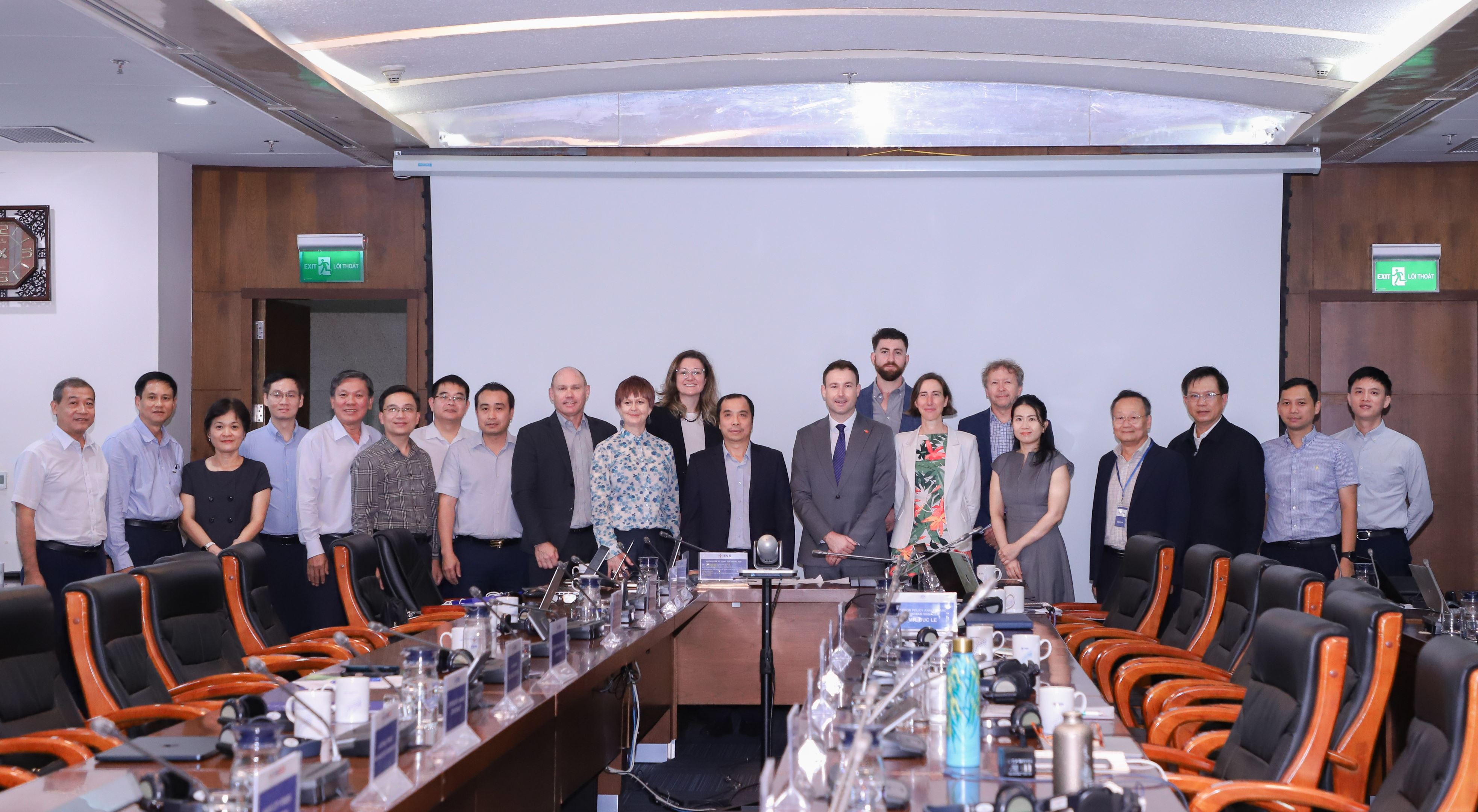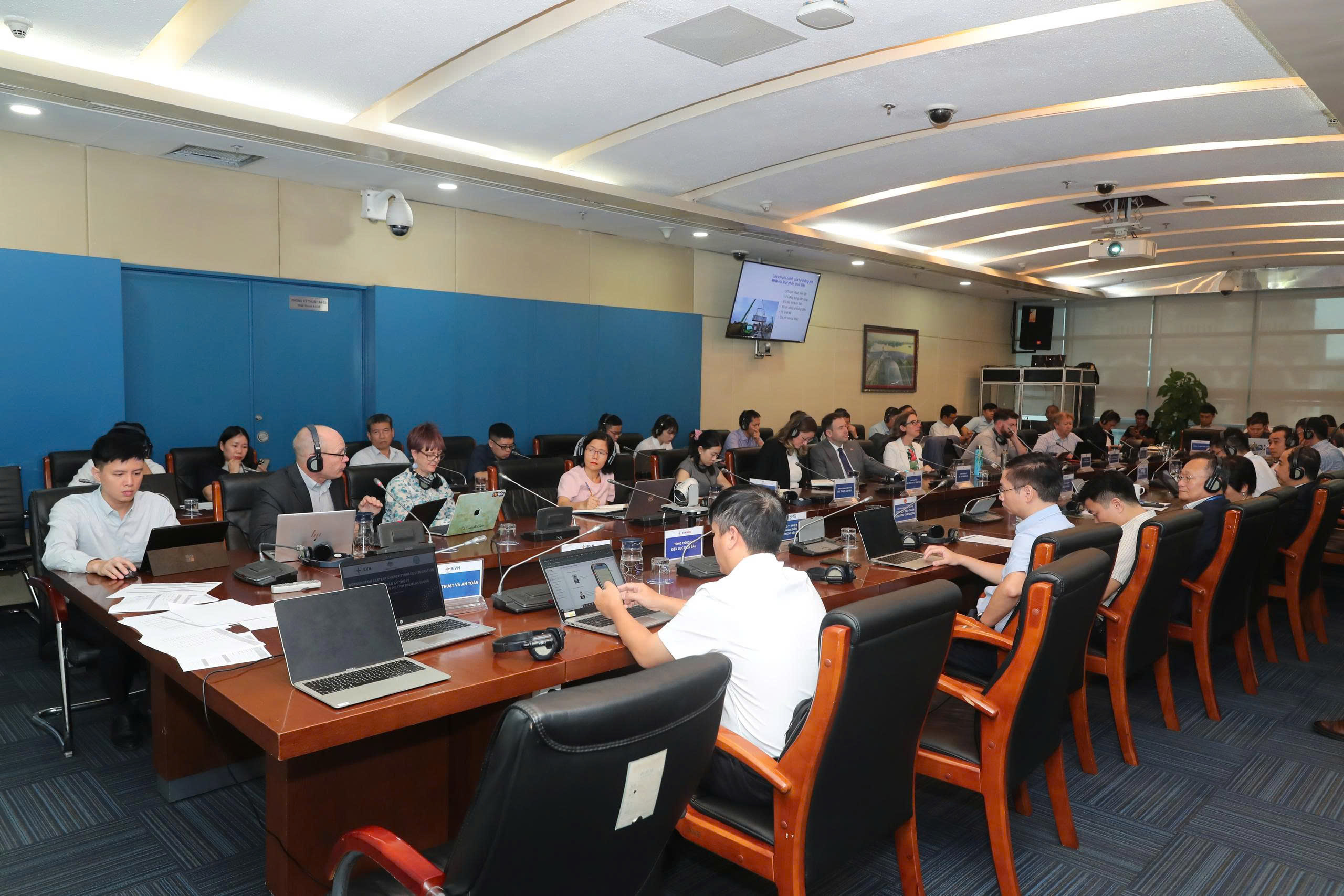The workshop was attended by EVN Vice President Ngo Son Hai, along with representatives of EVN’s technical departments and member units.
On the Australian side, participants included representatives from the Australian Embassy in Vietnam and technical experts from CSIRO.

Participants at workshop held on October 14
The event aimed to share Australia’s practical experience in integrating BESS into power systems, supporting Vietnam in its energy transition, and in building a modern, resilient power grid.
In his opening remarks, EVN Vice President Ngo Son Hai noted that Vietnam’s total installed power generation capacity has now reached approximately 85GW, with renewable energy accounting for about 28% of the national system’s capacity. Ensuring safe and stable grid operation amidst such a high share of renewables has become a key task for EVN. “Given the increasing need to connect new renewable energy sources, the application of BESS solutions is timely and essential, helping to balance capacity and enhance grid flexibility and stability,” he emphasized.
Vice President Hai also highlighted that Decree No. 58 issued by the Government, detailing certain provisions of the Electricity Law on the development of renewable and new energy, has created a legal framework to promote self-generation and self-consumption rooftop solar models, thereby opening new opportunities for the development of the energy storage market in Vietnam.
He remarked that the workshop offered EVN a valuable opportunity to learn from international experience and adopt advanced models, standards, and management solutions, which will support the effective implementation of the adjusted National Power Development Plan VIII and promote sustainable energy transition in Vietnam.

Panoramic view of workshop
At the event, Australian experts presented technical insights on BESS deployment, covering all stages - from design, planning, procurement, and installation, to operation and future scaling. They also shared experience in developing regulatory frameworks and technical standards for smart inverters, data management, and efficient integration of distributed energy resources (DERs) into the power grid.
In addition, the experts highlighted the progress and achievements of Australia’s energy transition. According to CSIRO data, as of 2024, renewables accounted for 40% of Australia’s national electricity output. Notably, Australia now leads the world in rooftop solar capacity, with over 26GW installed as of October 2025. Approximately 3.6 million household rooftop solar systems are currently connected to the National Electricity Market (NEM). As renewable energy penetration increases, the need for energy storage becomes critical to ensure grid flexibility and stability.
The insights shared by the Australian experts provided useful information and outlined feasible solutions for developing Vietnam’s energy storage market and supporting a more sustainable and efficient energy transition.
Translator: Hoàng Duy Khánh
Share